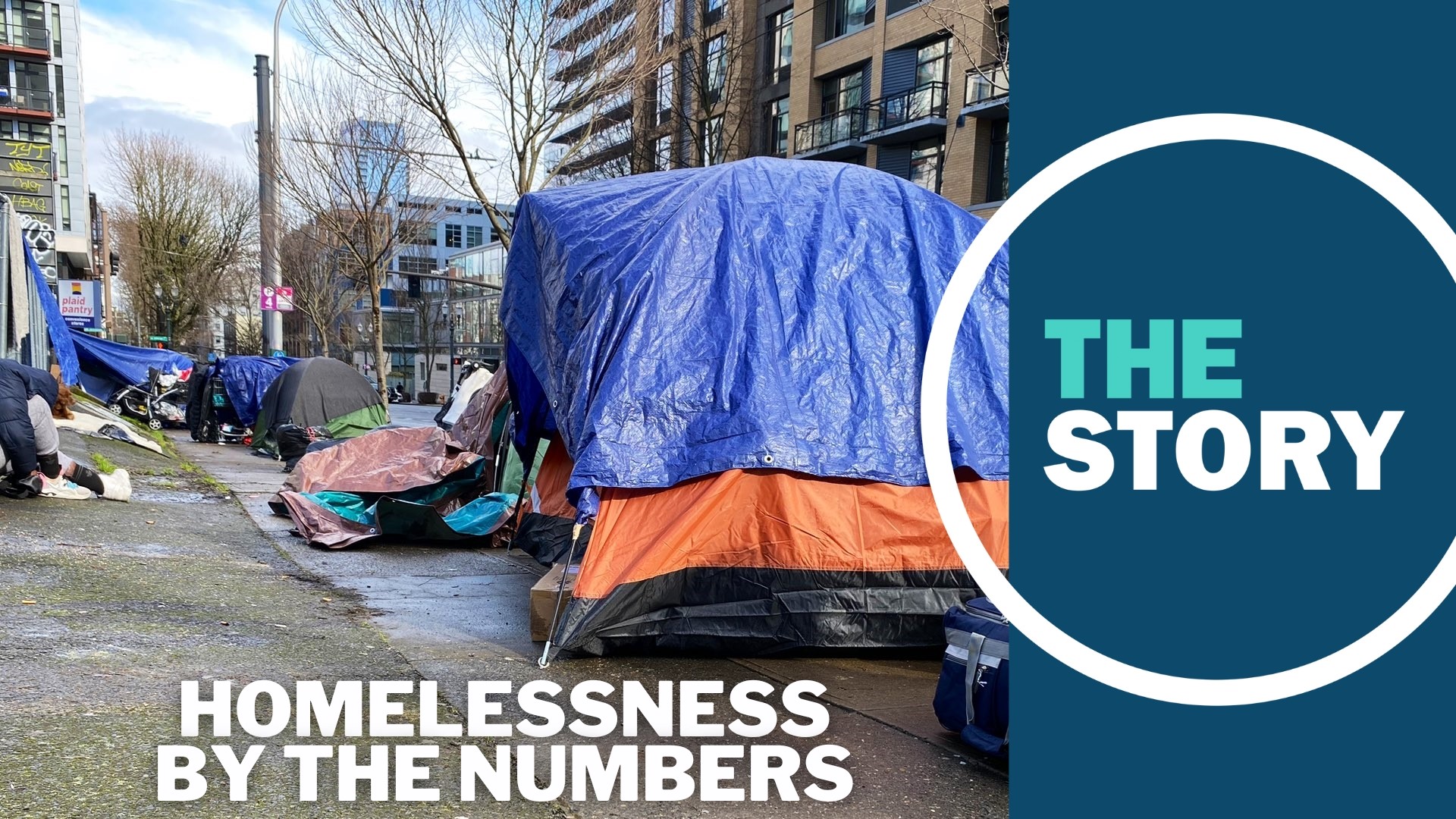PORTLAND, Ore. — Eight years ago, leaders at the city of Portland and Multnomah County dreamed up the Joint Office of Homeless Services as a clearinghouse for both entities to coordinate their efforts to address homelessness. But as Willamette Week recently reported, the office has been flying essentially blind — without consistent data to guide those efforts — since it was formed.
JOHS handles hundreds of millions of taxpayer dollars each year, then distributes that money out to a few hundred nonprofits contracted to handle different aspects of the homelessness response. That includes outreach work, shelters, transitional housing programs and financial support for people who might otherwise not be able to afford housing, to name a few.
One of the biggest criticisms of the joint office over the last few years is that nobody in the system seems to know who specifically is being helped, and whether it's making a measurable difference. JOHS does report the number of people helped, maintaining an online dashboard with the data, but it's impossible to know if the counts include only unique interactions or if, for example, one person was helped multiple times.
Willamette Week's reporting details how the office has not known this sort of specific information since its inception. The Story's Pat Dooris decided to sit down with the author of that story, Nigel Jaquiss, to find out more about the report.
WORTH YOUR TIME: After long wait, Multnomah County takes big step toward better understanding who's homeless and what services they need
"It's really remarkable. Since the joint office was formed in 2016, you would have thought that that system would have moved over from where it used to reside at the Portland Housing Bureau almost immediately," Jaquiss said. "There have been a lot of wrangling between the city and the county. There's been a lot of conversation. But in fact it took nearly 8 years, until March 25, (2024) for the county joint office to get control of the system."
Jaquiss is talking about the Homeless Management Information System, a database originally maintained by the city that was developed as a standardized way to track dollars from the federal Department of Housing and Urban Development.
It's not a great system, particularly these days — it's criticized as clunky and outdated. But it is a central database that has historically been used to gather and store info on people experiencing homelessness. For years, even this imperfect tool failed to make its way from the city to the county, as the latter took the driver's seat for JOHS.
"I think that anybody would recognize that in any human endeavor, data is helpful," Jaquiss continued. "So, who's out there, what services do they need, what services have they used in the past — you would be able to analyze from that data what projects or services are effective in reducing homelessness.
"We really haven't had any of that data. The limited data that the system currently contains is largely inaccessible to the nonprofits who provide services, its largely inaccessible to the government partners, and the data itself is very incomplete. So, the consultant who looked at this said there are about 50 different things you would like this system to be able to tell you. It can only tell you eight of those. And hardly anybody can access the information contained in those eight fields."
After eight years spent trying to get its hands on this system, Multnomah County has it. And now, Jaquiss said, they're going to spend another three years replacing it with something that will actually provide useful data gathering and sharing.
"I think it's one of those cases ... when everybody's in charge, nobody's in charge," he added. "The joint office is a joint venture between the city and the county. The city and county elected officials often don't get along — they've treated this as a turf battle rather than something that could be useful at alleviating the humanitarian disaster on our streets. And nobody has really put his or her foot down and said, 'This is unacceptable.'"
From 2017 through 2023, the joint office received $444,682,583 of taxpayer funds, according to Multnomah County budget reports. Its budget into this year was $280 million.
The budget for 2025 begins July 1, and it's unclear how much will be put toward JOHS — but if it's the same as it was in the last budget, taxpayers will have spent a billion dollars on homelessness through JOHS alone over the preceding nine years. More money has been spent by individual counties, cities and the state of Oregon.

